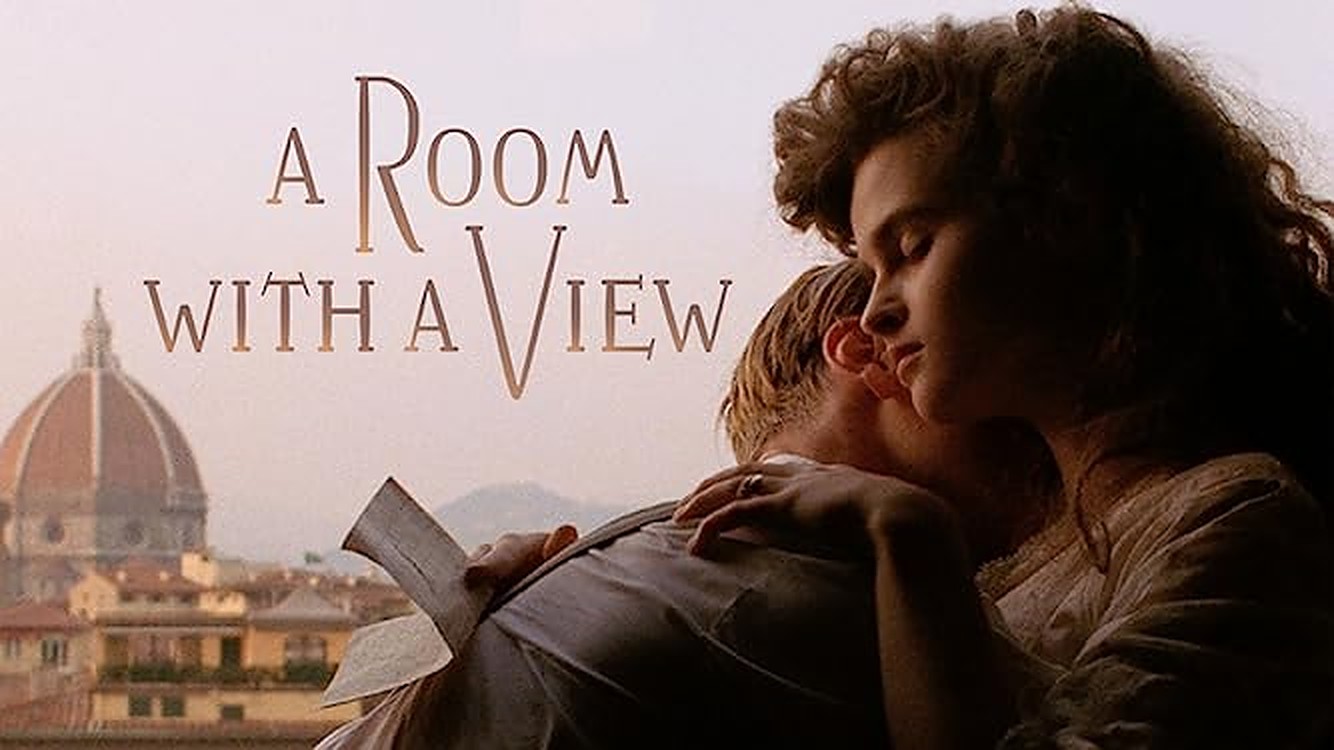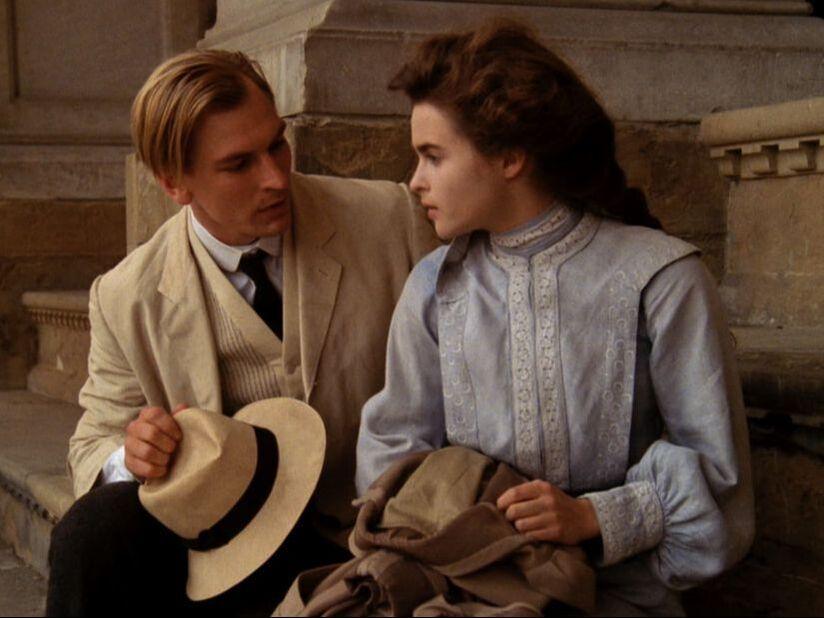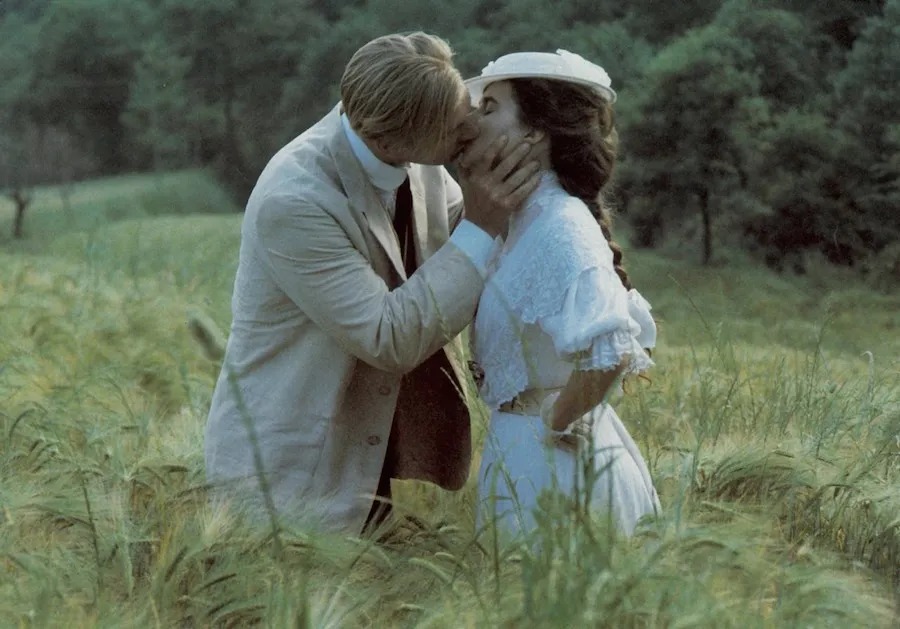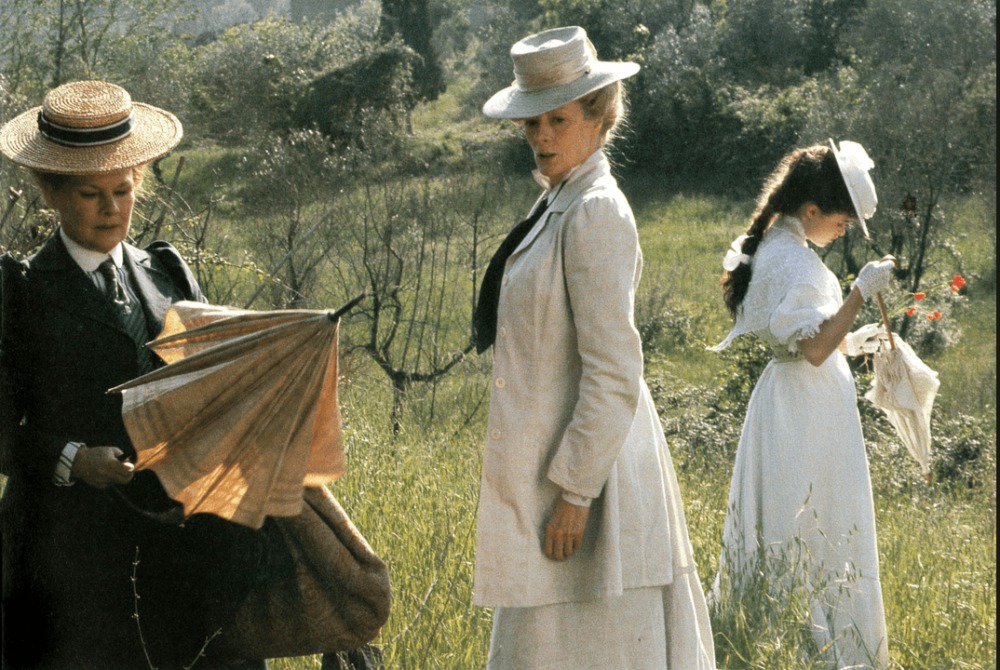A Room with a View (1985)

A Room with a View is a 1985 British romantic drama film directed by James Ivory and produced by Ismail Merchant. The screenplay was adapted by Ruth Prawer Jhabvala from E. M. Forster’s 1908 novel of the same name. Set in the early 20th century, the film explores themes of love, social expectations, and personal freedom. The story follows a young woman named Lucy Honeychurch, played by Helena Bonham Carter, as she navigates the complexities of her emotions and societal pressures.
The film begins with Lucy, a reserved and sheltered young woman, traveling to Florence, Italy, with her chaperone, Miss Bartlett. There, Lucy meets two very different men: the passionate and unconventional George Emerson (played by Julian Sands) and the charming but conventional Cecil Vyse (played by Daniel Day-Lewis). The contrast between these two men plays a central role in Lucy’s emotional journey, as she finds herself torn between her attraction to George, who represents freedom and spontaneity, and Cecil, who embodies the more refined, socially accepted path.
As the story unfolds, Lucy becomes increasingly aware of the limitations imposed by her society and the expectations placed upon her as a young woman. While George encourages her to embrace a life of authenticity and passion, Cecil represents the safety and security of social conformity. Lucy’s struggle to choose between these two men symbolizes her larger internal conflict between following her heart and adhering to the conventions of Edwardian society, which often suppress individual desires in favor of social propriety.

The film’s rich cinematography and setting further enhance the emotional depth of the story. The contrast between the lush, vibrant landscapes of Italy, where Lucy experiences true emotional freedom, and the rigid, controlled environment of her English home emphasizes the tension between the characters’ inner desires and the societal norms that surround them. The “room with a view” itself symbolizes Lucy’s journey towards self-discovery, as she moves from a life of limitation to one of possibility and openness.

A pivotal moment in the film occurs when Lucy makes a bold decision that challenges the constraints of her social world. Her choice, which is both a personal and romantic one, marks a significant moment of growth and self-liberation. The resolution of the film shows how Lucy, having confronted her own fears and desires, finds the courage to live a life that is true to herself, rather than one dictated by societal expectations.

In conclusion, A Room with a View is a beautifully crafted film that explores themes of love, societal expectations, and personal freedom. James Ivory’s direction, combined with Ruth Prawer Jhabvala’s adaptation and the stellar performances from the cast, creates a poignant and timeless narrative. The film highlights the importance of following one’s heart and breaking free from societal constraints, making it an enduring classic in the romantic drama genre.











